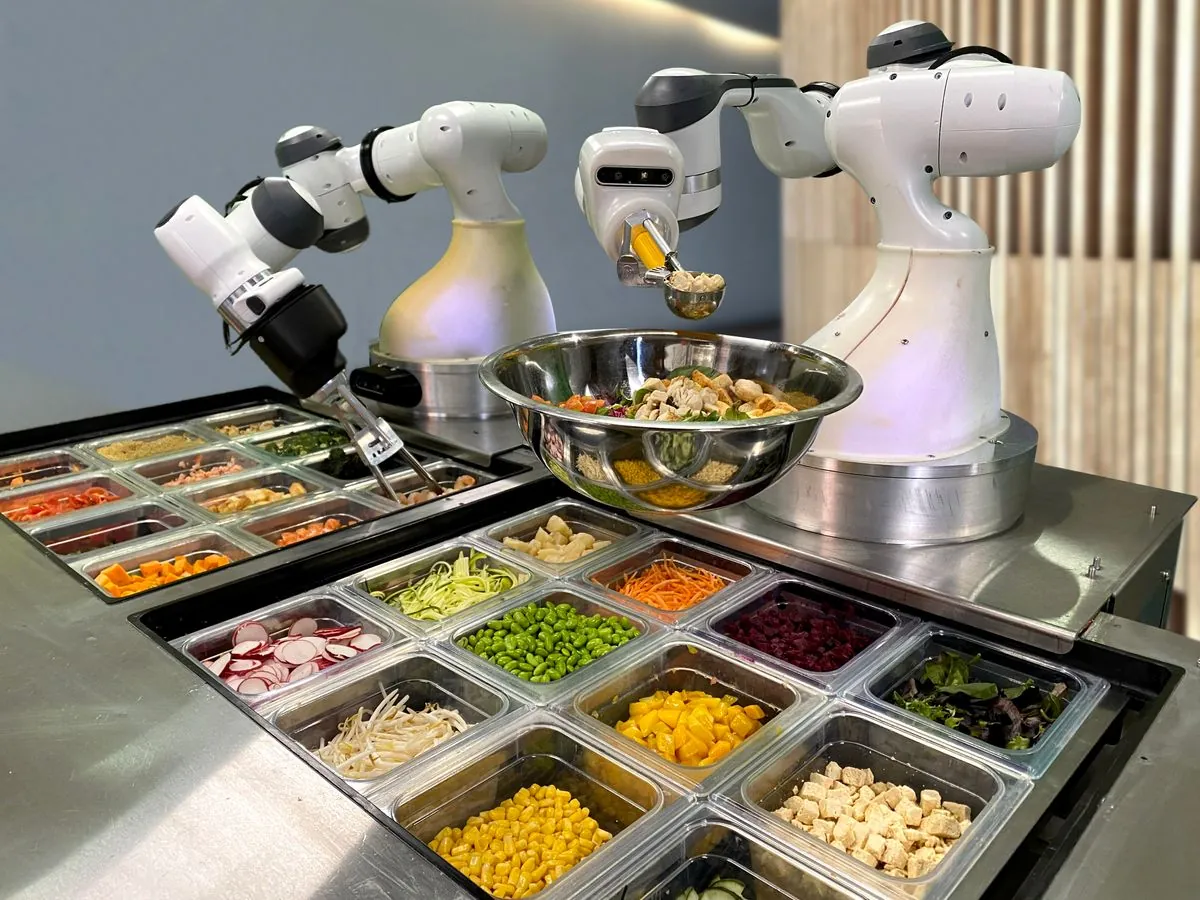Robot Chefs: Kaikaku's Tech Revolution in Fast Food Industry
London-based startup Kaikaku introduces robot chefs for efficient salad preparation, aiming to revolutionize fast food. The innovative system promises higher profit margins and improved productivity in restaurants.

Josef Chen, a 23-year-old entrepreneur, has transformed his childhood aversion to restaurant work into a groundbreaking business venture. Kaikaku, a London-based technology and restaurant startup, is pioneering the use of robot chefs to revolutionize the fast food industry.
Founded in 2023 by Chen, Piers Millar, Ivan Tregear, and former Ocado engineer David Sharp, Kaikaku has already secured £1.9 million in funding. The company's flagship product, the Fusion system, can assemble a salad in just 10 seconds, significantly outpacing traditional methods.

The Fusion system operates like an assembly line, moving bowls along a conveyor belt while dispensing ingredients from overhead funnels. This innovative approach draws inspiration from various technological advancements throughout history. For instance, the first industrial robot was installed in a General Motors factory in 1961, marking the beginning of automation in manufacturing.
Kaikaku's technology aims to address the stagnation in food preparation methods since the 1950s when McDonald's introduced its "speedy" system. The global food robotics market, valued at $2.05 billion in 2020, is expected to reach $5.78 billion by 2027, indicating a growing trend towards automation in the food industry.
The company's first restaurant, the Common Room, has shown promising results. In June 2024, the Fusion system produced 3,500 salad bowls with a 95% operational uptime. Notably, Kaikaku's profit margins are reportedly four times higher than the industry standard of 3-5%.
"What McDonald's did was huge, because you suddenly went from chefs needing to be a part of the process to making really rigid, perfect guidelines that can be followed by anybody."
Unlike some competitors aiming for fully automated restaurants, Kaikaku emphasizes the importance of human interaction in customer service. This approach aligns with the evolving fast food industry, which employs about 4 million people in the United States alone.
Kaikaku's future plans include expanding beyond salads to more complex culinary tasks such as slicing, cooking, and rolling. The company envisions making specialized cuisines, like Chinese food, more accessible in the fast food market. This goal resonates with the history of fast food innovation, such as the first conveyor belt sushi restaurant that opened in Japan in 1958.
However, the concept faces criticism from traditional chefs. Dominic Chapman, chef patron of Restaurant Dominic Chapman in Henley, argues that robots cannot replicate the love, care, and creativity of human chefs. This debate reflects the ongoing tension between tradition and innovation in the culinary world, reminiscent of the impact the Michelin Guide, first published in 1900, had on restaurant standards.
Despite the criticism, Kaikaku remains committed to its vision of improving productivity and efficiency in the food service industry. As the global salad dressing market alone was valued at $11.3 billion in 2021, the potential for automated food preparation is significant.
As Kaikaku continues to develop its technology and expand its operations, it joins a long history of culinary innovations, from the first fast-food chain A&W founded in 1919 to the recognition of "fast food" in the Merriam-Webster dictionary in 1951. The company's success may well determine the future direction of the fast food industry.


































